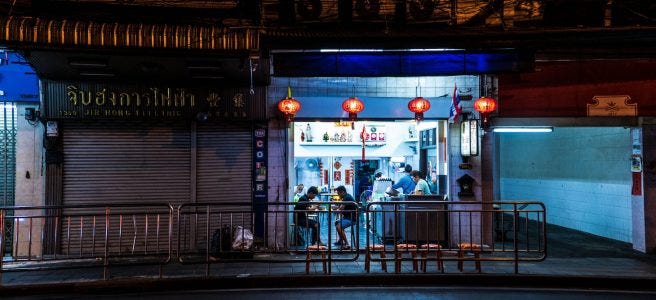NYFF: Notes on Days
Days is my 4th film of the New York Film Festival. I'm also a little embarrassed to admit it's my first movie by the Taiwanese auteur Tsai Ming-Liang. Luckily, Criterion Collection currently has a collection of three of Tsai's films: Rebels of the Neon God, Stray Dogs, and The Wayward Cloud. I'm looking forward to viewing them, though of course there's another week or two of NYFF to go. And let's not leave out Goodbye Dragon Inn!
Days has been the highlight of the festival so far for me. If you're not familiar with Tsai's films they are the epitome of slow cinema: one-shot, long take scenes, little or no dialogue, little non-diegetic music, carefully composed compositions. Days takes patience to watch, and like The Calming (see my notes here) the film is a meditative experience, like floating on a calm sea in perfect weather. But a comparison of these two films is instructive in understanding the difference between a film whose meditative experience creates a transcendent-type experience and one that just creates the pleasing experience of a nicely composed screen saver.
Art cinema, almost by definition, creates an opaque experience. As viewers, one of our main goals is to discover the movie's treasures. We read subtly shifting expressions, contextualize minor moments, look for symbolism in mise-en-scene, attend to consciously created compositions, and listen for dialogue and music cues that will give us hints and glimpses into the film's deeper currents. That is, we look for externalizations of the internal, to help us connect to, and understand, the lives of these characters. In the slow cinema of filmmakers like Tsai, the subtlest differences can create important meaning. But all this effort can't be solely intellectual and aesthetic; it must also create an emotional resonance. Often it's the combination of these elements that marks a great cinematic experience. And this is the difference between The Calming and Days.
As I mentioned in my notes on The Calming, we get almost no access into the main character Lin. Beside one moment that is hard to contextualize, Lin is a cypher, and though the compositions are often beautiful, that's all they are. And while this can be a satisfying experience in it's own right (and to a good degree, it is) it doesn't create the transcendent experience that we find when the opacity shifts and shimmers, allowing access to the internal lives of the characters.
Days is largely a simple film. It's opacity isn't created by obscurity; instead it's created by the ordinary. We have two main characters, Kang (played by Tsai's "muse" Kang-sheng Lee) and Non (Anong Houngheuangsy). The first half of the movie moves back and forth between the mostly solitary lives of these two men. Kang watches the rain from behind a large window at his home, then seems to travel to a city (Bangkok?) and rests in a spa-style pool, receives acupuncture, and checks into a hotel. Meanwhile, Non (who looks to be half the age of Kang) spends an inordinate amount of time preparing and eating food, and showering and cleaning. That is, not much happens. But we experience the solitary rhythms of each character, one mostly at home, the other on a health get-away. The long takes allow the rhythm to be created by the characters, rather than the editor, and the mise-en-scene contextualizes the world in which we watch these delicate lives unfold.
And then, the two characters come together for a patient, tender, melancholy joining that cracks open their isolated worlds. Their loneliness is both accentuated and relieved by their evening together. Their encounter spans 6 or 7 shots that make up the longest portion of the movie and creates its emotional gravity.
And then, they go their separate ways, and the rest of the movie reverts to a similar pattern as the beginning with Kang and Non returning to their solitary lives (Non back to his apartment, Kang back to his home). But each has been altered by their time together, like a realization that the world extends just a little further than they realized. They eat, they sleep, they work, and their dialogue and actions give nothing away, as with The Calming. But unlike The Calming, the movie's structure, the context of events, the lingering shots, the micro-expressions of Kang and Non, and one key prop speak volumes. Knowing the world is a little bigger than they realized creates hope, but also reinforces the sadness and loneliness of the limited world each inhabits. And this is the difference between calmness and transcendence.




